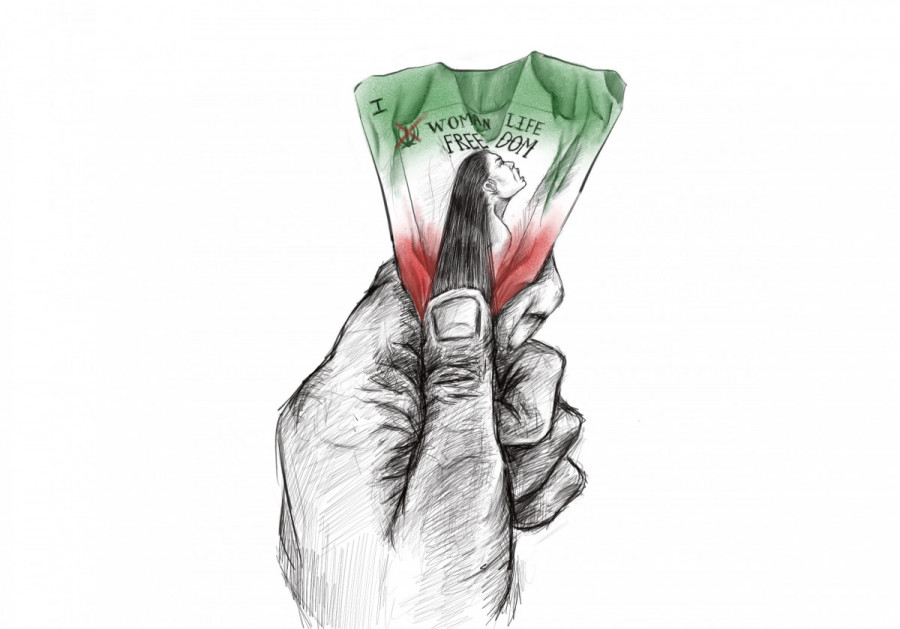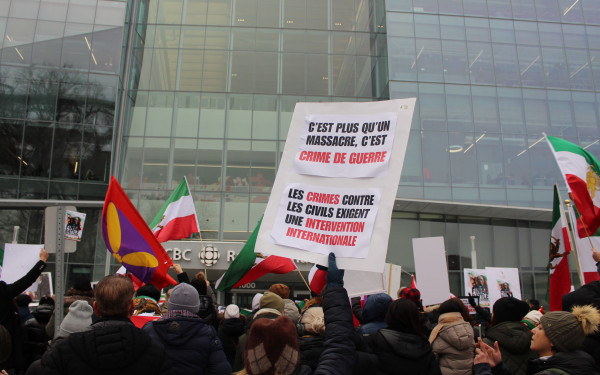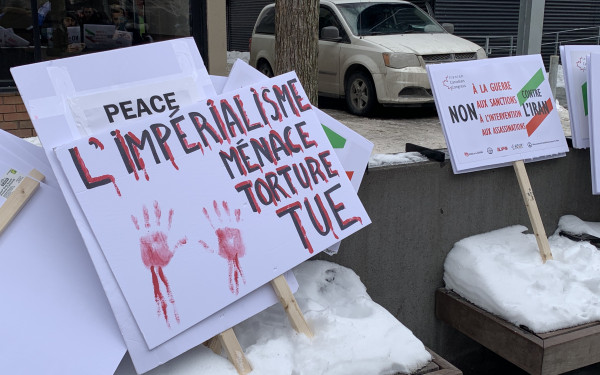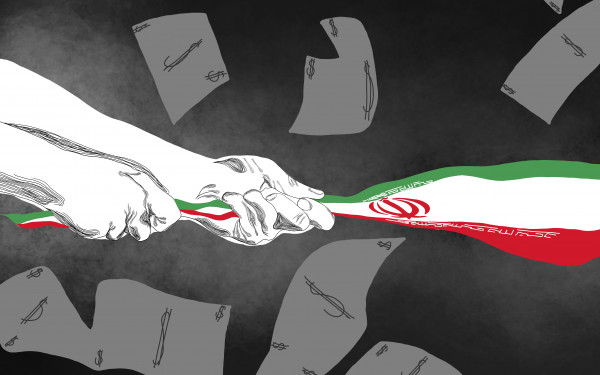A Reason to Fight: Iranian Students Fear for Their Families
The Fight for Liberation Continues Despite Government Crackdowns
Disclaimer: For the safety of the students and their families, anonymity and pseudonyms were granted upon request.
Multiple failed attempts to contact her family have left Zahra feeling hopeless.
Her mother-in-law, who lives in a small town on the outskirts of Shiraz, Iran, does not have access to a virtual private network (VPN) in order to bypass the social media ban. Consequently, she cannot speak to her loved ones in Montreal on a regular basis.
Though they used to video chat frequently, Zahra and her family have resorted to using calling cards to keep in touch. Her family members worry for her very much, as they aren’t able to speak with her often.
And the feeling is mutual. Zahra’s brother-in-law was among the first protesters arrested at the start of Iran’s feminist revolution in September 2022. “They found a conversation in his WhatsApp telling his father about the protest. The court says he should be in prison for five years,” Zahra said.
He was travelling back home from work when he was stopped by police. They asked to check his mobile device without reason. The officers confiscated the device following his refusal to comply with their demands. He was then arrested.
Failure to keep in touch with the latest news from her family has been devastating for Zahra. As a Concordia student who immigrated from Iran two years ago, she has watched as state violence has continued to ravage protesters across her home country.
Zahra is one of many Iranian students in Montreal who have been isolated from their loved ones because of the ongoing protests in Iran.
Since the death of Mahsa Amini at the hands of Iran’s morality police on Sept. 16, 2022, uprisings have broken out in dozens of cities around the country. Amini’s death was the tip of the iceberg—a response to decades of repression and systemic violence against women.
Despite the ongoing efforts of Iranian students residing in Montreal to constantly organize protests in support of their families back home, the situation has taken a serious toll on their mental health and wellbeing.
Watching their families suffer from the civil unrest, government crackdowns, violence and economic turmoil has caused them a great deal of stress.
On Sept. 21, mobile network carriers in Iran began halting users' Internet access daily from 4 p.m. until around midnight. As of Sept. 30, this routine was still being enforced.
In order to control its activities and intensify censorship, the government blocked Facebook, YouTube, WhatsApp, TikTok, Twitter and other social media networks.
On Dec. 18, the Iranian regime gave Meta Platforms, an American company that owns WhatsApp, Facebook and Instagram, 10 days to establish offices in Iran if they wished to have their applications unblocked.
“We have to keep pushing them, we have to give them a reason to care. It takes a lot to go to the protests.” — Kiana
“When you’re outside of Iran, it is challenging because I want to do something but felt like I could do nothing,” Zahra said. “Every day I heard bad news in Iran, I couldn't concentrate. I felt that many of my friends had the same issue and couldn't even work or study.”
For Reza, a fellow Concordia student from Iran, it has been very hard to keep in touch with his family. Given that the government is consistently monitoring conversations by utilizing digital surveillance, he feels unsafe communicating with them.
He said that his family members in Iran used WhatsApp to communicate with him, but the government blocks communication even there. Forced to adapt, his family must switch between apps to keep in contact.
“It’s hard to watch and listen to the news every day. One of the reasons I’m not up to date is that I feel that it will get to me, and so I disconnect,” Reza said. “My parents are always watching the news and keeping up to date, but it's tough.”
Safety is one of the biggest causes of concern for Iranians watching the crisis from abroad. International bodies such as the United Nations and various non-governmental organizations such as the Abdorrahman Boroumand Center and the Center for Human Rights in Iran have been highly condemnatory of Iran’s judicial system and its mass human rights violations since the uprising began.
“The justice system in Iran is rigged,” Reza said. “For the people who are sentenced to death, the judge would purposefully give them a bad defender, someone who is not good at their job. They do this to give them the image that they have a justice system but they simply don’t,” he claimed.
Going against the Iranian regime can result in severe injury or death. Prisoners and detainees are often tormented and deprived of their fundamental rights, according to Amnesty International.
In dealing with the anxiety of watching the turmoil unfold, a feeling of hopelessness has been stirring in the students living away from their loved ones. For Kiana, an Iranian student from Dawson College, “to a certain degree, it almost feels like a forced exile.”
However, students like Zahra endeavoured to find a way to be a meaningful voice for Iran. In one of her classes, she spoke to her professor about her family’s situation back home, and was allowed to change her assignment in order to connect it to the ongoing movement.
“In this way, I did my assignment and was a voice for Iran,” she said.
Since September 2022, pro-Iranian protesters have taken to the streets of Montreal on a near-weekly basis to denounce the death of Mahsa Amini and to support the uprising, largely led by Iranian women. Students have played an integral role in maintaining the protests in Canada.
Though the protests by the Iranian diaspora have sparked conversations in Montreal and Canada, students like Kiana have found that the responses from local, provincial and federal governments have been performative at best.
“If this was something in their best interests, I feel that more would be done,” Kiana said. She found that “it’s mainly the Iranian diaspora” who has been taking concrete action in support of the Woman Life Freedom movement.
“We have to keep pushing them, we have to give them a reason to care,” Kiana added. “It takes a lot to go to the protests.”
Kiana hopes that continuing to hold protests in Montreal will create a snowball effect down the line. “Even if a few attend, more people will join because people will become curious, and it will increase in attention. By showing our faces, we are asking them to keep on going.”
This also applies to higher education institutions, Zahra added. According to her, Concordia has not taken enough action.
“When the movement started in Iran, my friend and I went when Concordia had a welcoming meeting at the beginning of the semester,” Zahra said. “We felt that they didn't do anything, and we asked them to do something, but they didn’t do much.”
Although the Iranian students of Montreal fear for their families back home, they remain hopeful and will continue to fight for them until change is achieved.
This article originally appeared in Volume 43, Issue 11, published February 7, 2023.






_600_375_90_s_c1.jpg)
